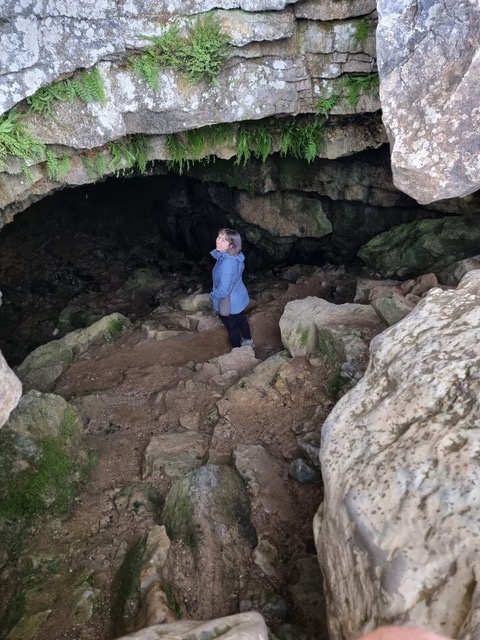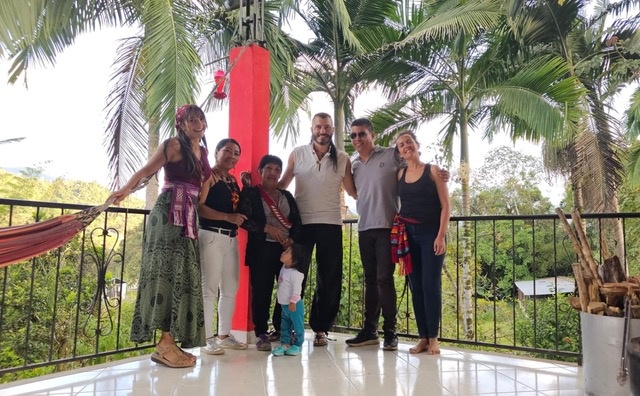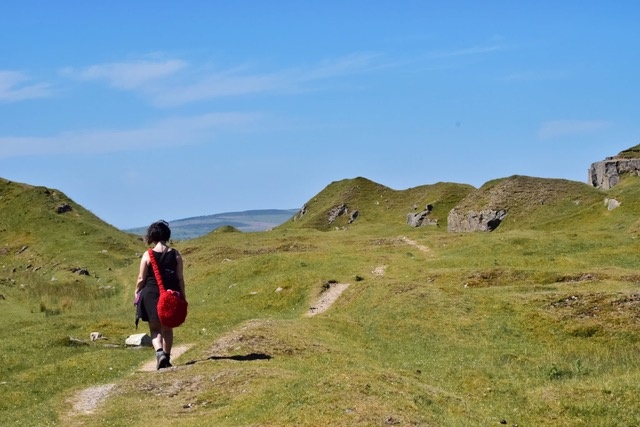The Gwrando programme was created as part of the United Nations Decade of Indigenous Languages and to allow artists to listen and learn from the many endangered Indigenous languages of the world. Here is Georgina Biggs talking about their project and journey so far.
The Embodied Ways of Listening project explored the subject of depression by working in topographical depressions in the landscape at Llangattock Escarpment, Wales. Across the miles, through international collaboration, integrating Western psychological and Indigenous perspectives to reflect on these embodied encounters, we sought to understand the role of nature in addressing mental health challenges.
Which Indigenous language / community have you been listening to?
The Muisca people of Colombia
Who have you been collaborating with?
Javier Hernando Peralta Gonzalez (Bogota, Colombia) - a visually impaired singer/songwriter and behavioral psychologist running the foundation Life Without Barriers supporting disabled people and refugees in Bogota. Anthar Kharana (Bogota, Colombia) – Founder of the Tambora Foundation, a musician, traditional healer, qualified sound healing therapist
What would you like to share about your journey?
That nature is listening and that it can be a great ally and guide in times of struggle. Connecting with something greater than ourselves, feeling part of a larger, interconnected web of life, can bring a profound sense of belonging and harmony to our existence.


What are your aspirations for the United Nations decade of Indigenous Languages?
This project was very much a beginning of a far larger exercise in developing a mutual understanding between very different cultures. There is a huge amount to learn from the relationship between the nature and mental health as understood by the Muisca people and we feel this work, supported by Javier’s medical knowledge and Gina’s lived experience, could make a very significant contribution to our thinking about mental wellbeing.
There are many elements of our working practice which we would look at differently were we to work with these partners again – and we would very much welcome the opportunity to do so. The key changes related to time. As Anthar explained in his evaluation of the work:
“I believe that this type of profound projects needs more time really. As we evolved, new and very interesting things come to pass and I would love to have time to make explorations that were not scheduled.”
We also want more deeply with the Indigenous people in designing the project and clarifying its purpose. We were necessarily reliant on Anthar as a gatekeeper in terms of conversations with the Muisca people but need to think more about how we might share the work in future. Since beginning the project, we have discovered the principle of Free, Prior and Informed Consent in relation to work with Indigenous peoples and discussed this at our final meeting. We feel strongly that this needs to apply to future projects but also to our work with disabled artists and this is an area we wish to explore in the future.
What is the one practical lesson you have learned that you want to share with other artists who would work with Indigenous languages?
We had learned from our previous project with the same partners that working across Spanish and English/Welsh, across time zones and through simultaneous translation on zoom was complicated; adding another layer of complexity and time.
Now, working with Indigenous speakers has made it more complex still - but also so much richer. We needed far more time and more immediate connections to get deeper into this work but even touching the surface shows there is so much to learn. Time is key - to listen, to build relationships, to understand.
The unpredictability of working with two disabled artists, whose health conditions and circumstances varied through the project, also added a layer of complexity and a need for flexibility. We met on Zoom after each mambeadero to discuss what we had learned from the conversations and our plans for the next session. One of these sessions was postponed due to Gina’s health challenges and one due to Javier’s need to attend a hospital appointment.
In a project with complex logistics working around a 5/6 hour time difference and everyone’s varied schedules this was difficult to manage. We need to build future projects around the unpredictable nature of living with disability and communicate this more clearly to better manage expectations as well as to provide the opportunity to informed consent.

